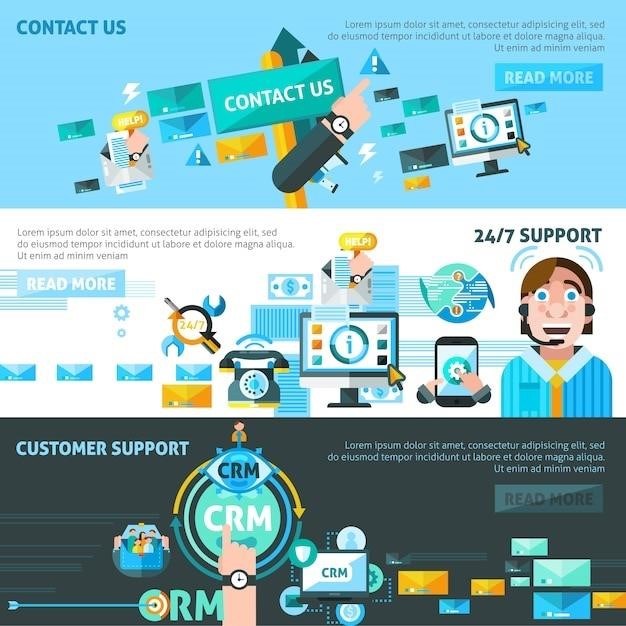
Sales Call Script Examples⁚ A Comprehensive Guide
Downloadable sales call script PDFs offer readily available templates‚ streamlining the creation of effective sales conversations. These customizable resources provide structure‚ ensuring consistent messaging and efficient lead qualification. Access pre-written scripts for various sales stages‚ from initial contact to closing the deal. Free and paid options are widely available online.
Sales call scripts are pre-planned conversations designed to guide sales representatives through interactions with potential clients. They provide a structured approach‚ ensuring consistent messaging and efficient lead qualification. These scripts aren’t rigid monologues; instead‚ they serve as flexible frameworks allowing for natural conversation while maintaining key talking points. Effective scripts incorporate elements like a strong opening‚ a clear value proposition highlighting the product or service’s benefits‚ skillful handling of objections‚ and a persuasive closing aimed at securing a sale or scheduling a follow-up meeting. The use of sales call scripts enhances consistency across the sales team‚ improving overall performance and reducing reliance on individual improvisation. Well-structured scripts save time and resources by focusing conversations on what matters most⁚ converting leads into customers. They also contribute to a more professional and polished image‚ enhancing customer trust and confidence. Whether used for cold calls‚ discovery calls‚ or demos‚ sales call scripts are a valuable tool for increasing sales effectiveness.
Types of Sales Call Scripts⁚ Cold Calls‚ Discovery Calls‚ and Demos

Crafting Effective Sales Call Scripts⁚ Key Elements and Best Practices
Effective sales call scripts balance structure with flexibility. A strong opening grabs attention‚ clearly stating the purpose of the call and establishing rapport. A concise value proposition highlights key benefits‚ addressing the prospect’s needs directly. Open-ended questions encourage engagement and information gathering‚ allowing for personalized responses. Active listening and empathy demonstrate genuine interest‚ building trust and rapport. Handling objections proactively addresses potential concerns‚ building confidence and demonstrating expertise. A clear call to action summarizes next steps and sets expectations. Scripts should be regularly reviewed and updated‚ adapting to changing market conditions and customer feedback. Concise language avoids jargon and technical terms‚ ensuring clear communication. Practicing the script beforehand builds confidence and smooths delivery. Finally‚ remember to maintain a natural and conversational tone‚ avoiding a robotic or scripted feel‚ thereby creating genuine connections with potential clients‚ ultimately improving conversion rates.
Overcoming Objections⁚ Sample Scripts for Common Challenges
Effective sales call scripts anticipate common objections and offer strategic responses. For example‚ addressing “price concerns” might involve highlighting the long-term value and return on investment‚ or offering flexible payment options. If a prospect claims “lack of time‚” suggest a brief demonstration or a follow-up call at their convenience. To counter “budget limitations‚” emphasize cost savings or increased efficiency achieved with your product. When facing “competitor comparisons‚” focus on unique selling points and superior features‚ not directly criticizing the competition. If a prospect expresses “need for more information‚” offer case studies‚ testimonials‚ or additional resources. Handling “decision-making processes” involves identifying key stakeholders and providing relevant information tailored to their specific roles. Remember‚ empathy and understanding are crucial. Acknowledge the prospect’s concerns‚ validate their perspective‚ and then strategically guide the conversation toward a positive outcome. Practice these responses to ensure smooth delivery and confident handling of objections during live sales calls.
Sales Call Script Examples PDF⁚ Downloadable Templates
Numerous websites and resources offer free and paid downloadable sales call script PDFs. These templates provide pre-written scripts for various sales scenarios‚ including cold calls‚ discovery calls‚ demos‚ and follow-ups. The PDFs often include customizable fields allowing sales representatives to personalize the scripts to their specific products or services and target audiences. Some templates offer different versions catering to various sales styles or industries. Using these PDFs can significantly improve consistency and efficiency in sales conversations. They provide a framework for structuring calls‚ ensuring all key points are covered‚ and reducing the likelihood of forgetting important details. Many templates also include tips and best practices for effective communication‚ objection handling‚ and closing techniques. By leveraging these downloadable resources‚ sales teams can enhance their performance and achieve better results. Remember to choose templates that align with your sales process and company’s brand voice. Regularly review and update your scripts to reflect changes in your product offerings or market conditions.
Using Positive Language in Sales Call Scripts
Positive language significantly impacts the effectiveness of sales calls. Instead of focusing on problems‚ highlight solutions and benefits. Frame your questions and statements constructively. For example‚ instead of asking‚ “What’s wrong with your current system?”‚ try “How can we improve your current workflow?”. Use enthusiastic and confident tones; avoid negative words like “problem‚” “difficult‚” or “failure.” Replace them with positive alternatives such as “opportunity‚” “challenge‚” or “improvement.” Express genuine interest in the customer’s needs and demonstrate empathy. Acknowledge their concerns and show understanding. Positive language builds rapport and trust‚ making customers more receptive to your proposals. It creates a collaborative atmosphere‚ fostering a positive interaction. Remember‚ your words shape the customer’s perception of your product and your company. A positive approach enhances customer experience and increases the likelihood of a successful sale. Review your scripts carefully‚ replacing any negative phrasing with more optimistic and encouraging language. This subtle shift can make a profound difference in your overall conversion rate.
Tailoring Sales Scripts to Specific Industries and Products
Generic sales scripts rarely achieve optimal results. Adapting your script to a specific industry and product is crucial for maximizing effectiveness. Understanding the unique needs and pain points of your target market is paramount. Research your industry’s terminology‚ common challenges‚ and regulatory requirements. Incorporate this knowledge into your script to demonstrate expertise and build trust. For example‚ a script for selling software to healthcare providers will differ significantly from one targeting manufacturing companies. The language‚ terminology‚ and value propositions should align with the industry’s context; Highlight the specific benefits of your product relevant to that industry’s challenges. Quantify these benefits whenever possible‚ using data and case studies to support your claims. Tailoring your script demonstrates preparedness and understanding‚ significantly increasing your chances of closing a deal. This targeted approach shows prospects that you value their time and understand their unique circumstances. Remember to adjust your script regularly to reflect changes in market trends and customer needs. By continually refining your approach‚ you ensure that your sales efforts remain relevant and effective.
Analyzing Successful Sales Calls⁚ Case Studies and Recordings
Analyzing successful sales calls provides invaluable insights for improving future interactions. Reviewing recordings of successful calls allows for the identification of effective techniques‚ such as strong opening lines‚ persuasive arguments‚ and skillful handling of objections. Note the salesperson’s tone‚ pacing‚ and ability to build rapport. Case studies detailing successful sales strategies can be equally beneficial. These studies often highlight the specific tactics used‚ the challenges faced‚ and the ultimate outcomes. By examining these examples‚ you can learn how to adapt successful strategies to your own sales approach. Pay close attention to how successful salespeople address customer concerns and objections. Observe how they guide the conversation towards a positive outcome. Analyzing successful interactions reveals what resonates with customers and how to effectively present your value proposition. This analysis process can identify areas for improvement in your own communication style and sales techniques. Consider incorporating elements from successful calls into your scripts to enhance their effectiveness. Regularly reviewing successful sales interactions helps maintain high performance and consistent results. Remember‚ continuous improvement is key to long-term sales success.
Improving Connect Rate⁚ Targeting Ideal Prospects
Increasing your connect rate begins with strategic prospect targeting. Instead of casting a wide net‚ focus on identifying your ideal customer profile (ICP). Thorough pre-call research is crucial; understand their needs‚ pain points‚ and online presence. Utilize tools like LinkedIn Sales Navigator to refine your targeting‚ identifying decision-makers and key influencers within potential client organizations. Leverage data-driven insights to prioritize prospects most likely to convert. This targeted approach ensures you’re spending time on qualified leads‚ maximizing your efficiency and improving your chances of success. Personalize your outreach; generic scripts rarely resonate. Tailor your messaging to each prospect’s specific circumstances and interests‚ showcasing how your product or service directly addresses their needs. Time your calls strategically; consider their working hours and avoid peak busy periods. Persistent‚ yet respectful‚ follow-up is important; don’t give up after one attempt. Track your results diligently; analyze which approaches yield the best connect rates and adapt your strategy accordingly. Refining your targeting and personalization strategies will significantly enhance your connect rate‚ leading to more productive sales conversations and increased conversion rates.
The Importance of Pre-Call Research and Preparation
Effective pre-call preparation is paramount for successful sales calls. Before dialing‚ thoroughly research your prospect. Utilize online resources like LinkedIn‚ company websites‚ and news articles to gather information about their business‚ recent activities‚ and challenges. Understanding their industry landscape and competitive position allows for a more informed and relevant conversation. Knowing the prospect’s role and responsibilities within their organization helps tailor your pitch to their specific needs and priorities. Identify key decision-makers and influencers involved in the purchase process. Prepare a concise and compelling value proposition highlighting how your product or service addresses their specific pain points and improves their bottom line. Practice your sales script beforehand to ensure a smooth and confident delivery. Anticipate potential objections and formulate responses to address them effectively. Having a clear understanding of your product’s features and benefits allows you to answer questions accurately and convincingly. By investing time in thorough preparation‚ you demonstrate professionalism‚ build rapport‚ and increase your chances of closing the deal. This proactive approach significantly enhances the overall effectiveness of your sales calls.
Utilizing Technology to Enhance Sales Call Effectiveness
Leveraging technology significantly boosts sales call effectiveness. Customer Relationship Management (CRM) systems store prospect data‚ track interactions‚ and automate follow-ups‚ ensuring no lead slips through the cracks. Sales engagement platforms streamline outreach‚ automating tasks like email sequences and social media interactions‚ freeing up time for more valuable conversations. Call recording and analysis tools provide valuable insights into call performance‚ identifying areas for improvement in communication style‚ pitch effectiveness‚ and objection handling. Predictive dialers optimize contact rates by automatically dialing numbers and connecting with available prospects‚ maximizing efficiency. Screen sharing and video conferencing tools facilitate engaging product demos and presentations‚ enhancing prospect understanding and engagement. Real-time chat integrations enable immediate responses to inquiries and support during sales calls. AI-powered tools can analyze call transcripts‚ identify key themes‚ and provide personalized insights to tailor future interactions. By integrating these technological tools into your sales process‚ you enhance productivity‚ improve customer engagement‚ and ultimately drive higher conversion rates. This strategic use of technology transforms sales call effectiveness;
Post-Call Analysis and Follow-Up Strategies
Post-call analysis is crucial for continuous improvement. Reviewing call recordings helps identify areas needing refinement‚ such as handling objections or clarifying value propositions. Analyzing call data‚ including duration‚ outcomes‚ and next steps‚ reveals patterns and trends‚ informing future strategies. CRM systems facilitate this process by storing call details and linking them to prospect profiles‚ building a comprehensive history of each interaction. Effective follow-up strategies are essential for nurturing leads and securing conversions. Tailored emails summarizing key discussion points‚ addressing unanswered questions‚ and offering additional resources reinforce engagement. Scheduling timely follow-up calls to address specific concerns or provide further information demonstrates commitment and builds rapport. Using automated email sequences for nurturing less-engaged prospects ensures consistent communication without overwhelming them. Tracking follow-up efforts and measuring their effectiveness provides insights into which strategies resonate best with various prospect segments. This iterative process of analysis and strategic follow-up optimizes sales efficiency and enhances conversion rates.
